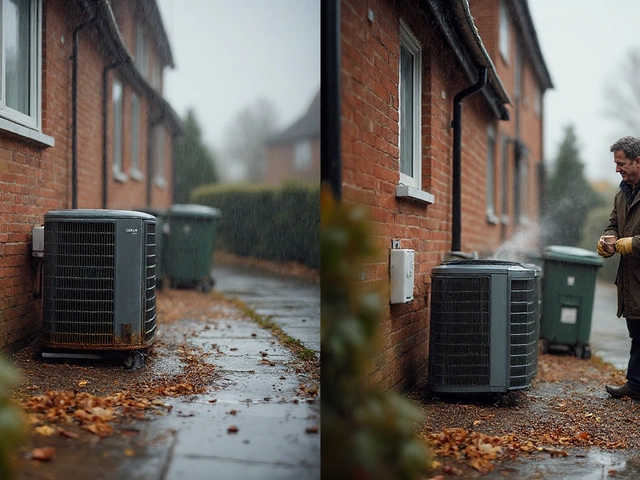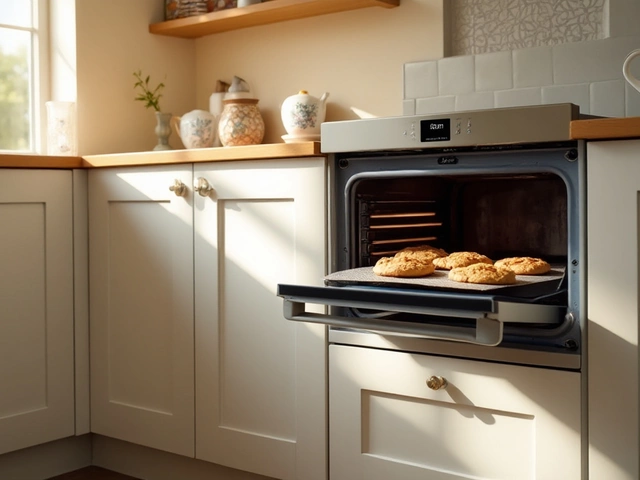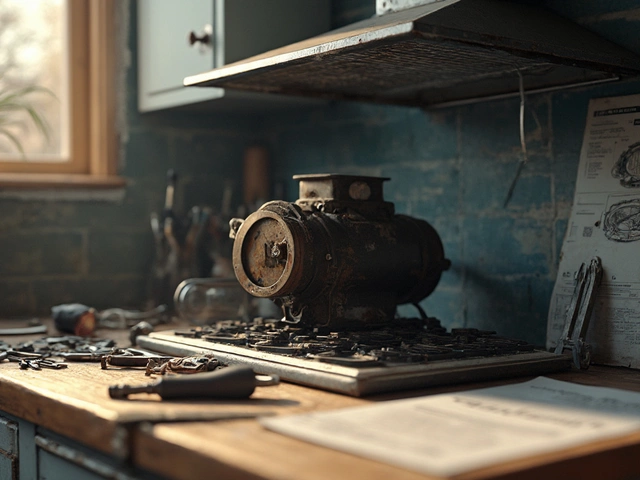If your microwave stopped heating, makes strange noises, or just won’t turn on, you don’t have to panic. Most issues are caused by a few common parts that you can check yourself before calling a technician. In this guide we’ll walk through the most frequent problems, show you easy DIY fixes, and tell you when it’s safer to call the experts at Bognor Regis Appliance Repair Experts.
First, pinpoint the symptom. Does the microwave display lights but stay cold? Does it power up and shut down after a few seconds? The answer will narrow down the culprit.
1. Tripped door switch. The safety switch that detects a closed door will stop the magnetron from running if it’s faulty. Open and close the door a few times – if the microwave works after a fresh close, the switch may be bouncing and needs replacement.
2. Blown fuse or circuit breaker. Microwaves draw a lot of power, so a blown fuse or a tripped breaker can cause a total loss of power. Check your consumer unit and replace any blown fuses with the same rating (usually 15‑20 A).
3. Failed magnetron. This is the heart of the oven that creates microwaves. If you hear a humming sound but nothing heats, the magnetron is likely dead. Replacing it is more expensive and often best left to a qualified engineer.
4. Faulty turntable motor. If the plate doesn’t spin, food may heat unevenly. The motor is cheap and easy to swap – just remove the lower plate, disconnect the motor wires, and snap in a new unit.
Before you reach for tools, always unplug the microwave. Safety first.
Check the door latch. Look for any debris or broken plastic around the latch. Clean it with a dry cloth and test the door a few times.
Reset the power. Unplug the microwave for two minutes, then plug it back in. This can clear minor electronic glitches.
Inspect the fuse. Most microwaves have a replaceable fuse behind the rear panel. Remove the panel, locate the glass or ceramic fuse, and replace it with the same voltage rating (usually 250 V).
Clean the interior. Food splatters can coat the waveguide cover (the small metal panel behind the door). If it’s dirty, wipe it gently with a damp cloth – a clean waveguide lets microwaves pass properly.
If after these steps the microwave still won’t heat, it’s likely a magnetron or control board issue. These parts involve high voltage and should be handled by a certified technician.
When you’re ready to call a pro, choose a local, Gas Safe‑registered service. Bognor Regis Appliance Repair Experts can diagnose the problem, source genuine parts, and have the right safety checks in place. Their same‑day response means you won’t be waiting weeks for hot meals.
Remember, regular maintenance helps avoid breakdowns. Wipe down the interior after each use, keep the door seal clean, and avoid running the microwave empty. A little care now saves you time and money later.
Got a stubborn microwave that won’t cooperate? Try the quick checks above, and if they don’t work, give the local experts a call. A fast, reliable fix is just a phone call away.

Microwaves seem invincible until they suddenly stop working—usually right when you're hungry. This article tackles what actually breaks down most often in a microwave, from simple blown fuses to tricky magnetrons. You'll learn the telltale signs for each failure, why these things wear out, and how to figure out if it’s something you can fix yourself. Plus, there are practical tips on keeping your microwave running smoother for longer. Perfect for anyone tired of cold leftovers and expensive repair bills.

Wondering if you can fix your microwave at home instead of tossing it and buying a new one? This article breaks down common microwave problems, what you can safely handle, and when it's better to call a pro. Get practical tips that actually make a difference, plus real talk about microwave safety. Save yourself time, money, and stress with easy-to-follow advice. Tackling your appliance repair just got a whole lot simpler.

Real UK lifespan for air vs ground source heat pumps, what shortens or extends life, maintenance steps, and a simple repair-or-replace guide you can actually use.

If your cooker suddenly stopped working, it might be due to a range of reasons from electrical issues to simple user errors. Understanding the root cause is key to fixing the problem efficiently. In this article, we explore common reasons why cookers fail and offer practical troubleshooting tips to get your appliance working again. From checking the power supply to examining electrical components, we cover it all. Get your cooker back up and running with our straightforward guide.

An electric oven is a staple in most kitchens, used for everything from baking cookies to roasting savory meals. Knowing how long an electric oven is expected to last can help homeowners budget and plan for replacement or repairs. This article explores the average lifespan of electric ovens, factors influencing their durability, and tips on maintenance to extend the life of the appliance. Understanding these aspects will aid in maximizing the utility and performance of your oven.

Thinking of fixing your own water heater? Learn when DIY is safe, common problems, money-saving tips, and when to call a pro.

Thinking about swapping out the motor in your extractor fan? This article breaks down what's really involved, the red flags that mean the motor's cooked, and how to decide if you should tackle it yourself or call in a pro. It covers how to find the right replacement part, tips to avoid shocking mistakes, and why some fans just aren’t worth fixing. Whether your bathroom fan wheezes or your kitchen extractor hums like a jet, here’s how to handle a motor on its last legs.